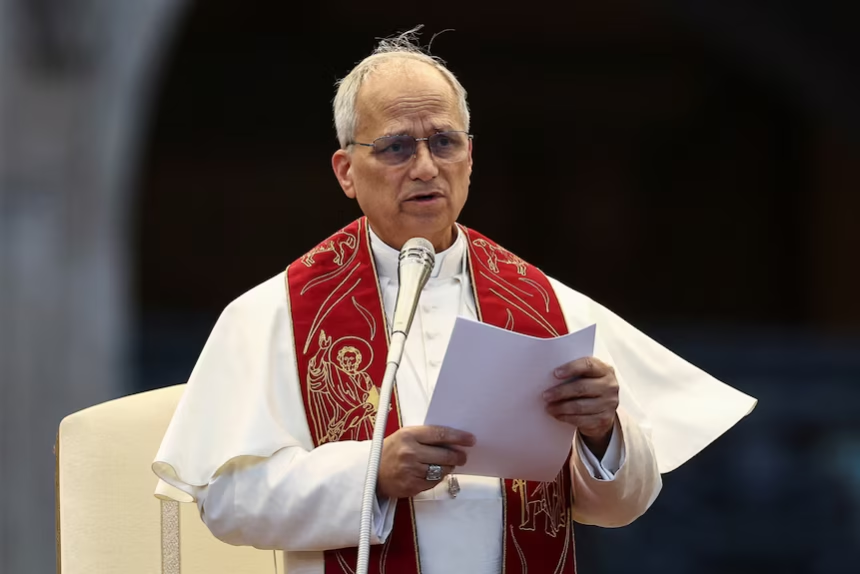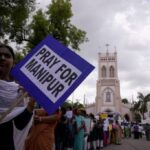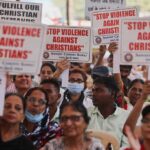VATICAN CITY — During a well-attended Pentecost Mass in St Peter’s Square on 8 June 2025, Pope Leo XIV, the first pope from the United States, spoke plainly about the need for compassion and solidarity in a world growing more divided by nationalism.
In a message that many saw as a challenge to rising nationalist policies, the pope prayed for God to “open borders, break down walls, [and] dispel hatred.” His homily tackled what he called an “exclusionary mindset” that continues to drive political division, particularly referencing policies in the United States under President Donald Trump as well as other right-wing leaders.
Before becoming Pope Leo XIV in May 2025, Cardinal Robert Francis Prevost had built a reputation for speaking out against strict immigration rules, especially those put in place by the Trump administration. The Chicago-born cardinal, who also holds Peruvian citizenship, often used the social platform X to post comments that questioned the statements and actions of both President Trump and Vice President JD Vance, a Catholic convert.
In early 2025, Prevost reposted an article from the National Catholic Reporter that challenged Vance’s use of church teachings to justify deportation policies. Other posts drew attention to the pain faced by migrants, such as an op-ed by Bishop Evelio Menjivar of Washington, D.C., which raised concerns about the ethics behind Trump’s approach to immigration.
While the Vatican has not confirmed whether the X account was officially his, these posts have sparked both praise and criticism, especially from those on the conservative side.
Pope Leo describes nationalism.
During Pentecost, Pope Leo built on these earlier comments, describing nationalism as something that blocks the universal love Christians are called to show. “The Spirit of Pentecost calls us to a brotherhood open to all, without exception,” he said, drawing on the story of the Good Samaritan. “We cannot build walls when our Lord asks us to build bridges.”
His comments were widely seen as a response to Trump’s “America First” approach and similar anti-immigrant stances in Europe and elsewhere. Leo’s call to “open borders” and “break down walls” echoes the approach of Pope Francis, who also often spoke up for migrants, sometimes clashing with Trump.
The Catholic Church has long stressed the value and dignity of every person, regardless of where they were born. But the rise of right-leaning parties in Europe and other regions has put this teaching to the test. Parties such as Italy’s League, France’s National Rally, and Germany’s Alternative for Germany have gained support by arguing that high levels of immigration bring economic and social problems.
They claim mass migration puts a strain on public services and threatens national traditions. Pope Leo pushed back, saying, “hatred and exclusion are not the answers to our struggles.” He urged leaders to look for the causes of migration, such as poverty and conflict, instead of turning to isolation.
Immigration continues to divide opinion in the United States and around the world. The Trump administration’s policies, including big deportation drives and cuts to foreign aid, have raised concerns among Catholic leaders who say these steps undermine human dignity. As a cardinal, Prevost showed support for the #Dreamers and shared messages from figures like Sister Helen Prejean calling for a “fair, just, and moral” approach to immigration.
Prudent and just solutions
He also criticized Trump’s use of phrases like “bad hombres,” echoing California bishops who said such language encourages racism and nativism. These opinions have made him a target for some conservative Catholics, with commentators like Laura Loomer labelling Leo a “Marxist” and “open borders globalist.”
Even so, Pope Leo’s message was balanced. He admitted migration is a complex issue and called for “prudent and just solutions” that protect both countries and individuals. But he warned against the “false security” of nationalist thinking, saying it leads to more division and even conflict.
“The Church must be a beacon to illuminate dark nights,” he said, referring back to his first Mass as pope. Leo has described his vision as a “synodal church,” where people work together to solve global problems, keeping up the work started by Pope Francis.
Public reaction to the pope’s remarks has been sharply divided. Some people on X called him a “prophet of hope,” reflecting comments from Catholic priest Bryan Massingale, who wants Leo to provide moral leadership.
Others, particularly Trump supporters, voiced concern, with Charlie Kirk asking if Leo is a true “pro-life warrior” or just an “open borders globalist.” The Vatican’s decision to take down the @drprevost X account after Leo’s election has only increased the debate over his views.
Leo’s opposition to nationalism comes from personal experience. After decades as a missionary in Peru, he has seen the impact of poverty and exclusion up close. His brother, John Prevost, told The New York Times that immigration is a personal issue for the pope, who is unlikely to stay quiet about it. “He’ll say something about it,” John predicted, making it clear that this will be a focus of his time as pope.
Meeting Vance and Rubio
As the first American to lead the Catholic Church, Pope Leo XIV is in a unique position to influence debate, especially in the US, where about one in five people are Catholic.
His recent meeting with Vice President Vance and Secretary of State Marco Rubio on 19 May 2025 focused on finding ways to work together on peace issues, like ending the fighting in Ukraine.
But when it comes to immigration, the gap between the Vatican and the Trump administration remains wide. Rubio admitted the issue is “largely unbridgeable.”
In his Pentecost message, Pope Leo called on Catholics and leaders everywhere to put aside fear and choose love. “The kingdom of God is built on abundance, not scarcity,” he said, quoting a piece he shared as a cardinal.
As he settles in as pope, Leo XIV looks likely to keep speaking up for those who are excluded, carrying on the focus of Pope Francis while making his mark.







